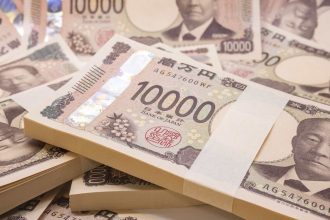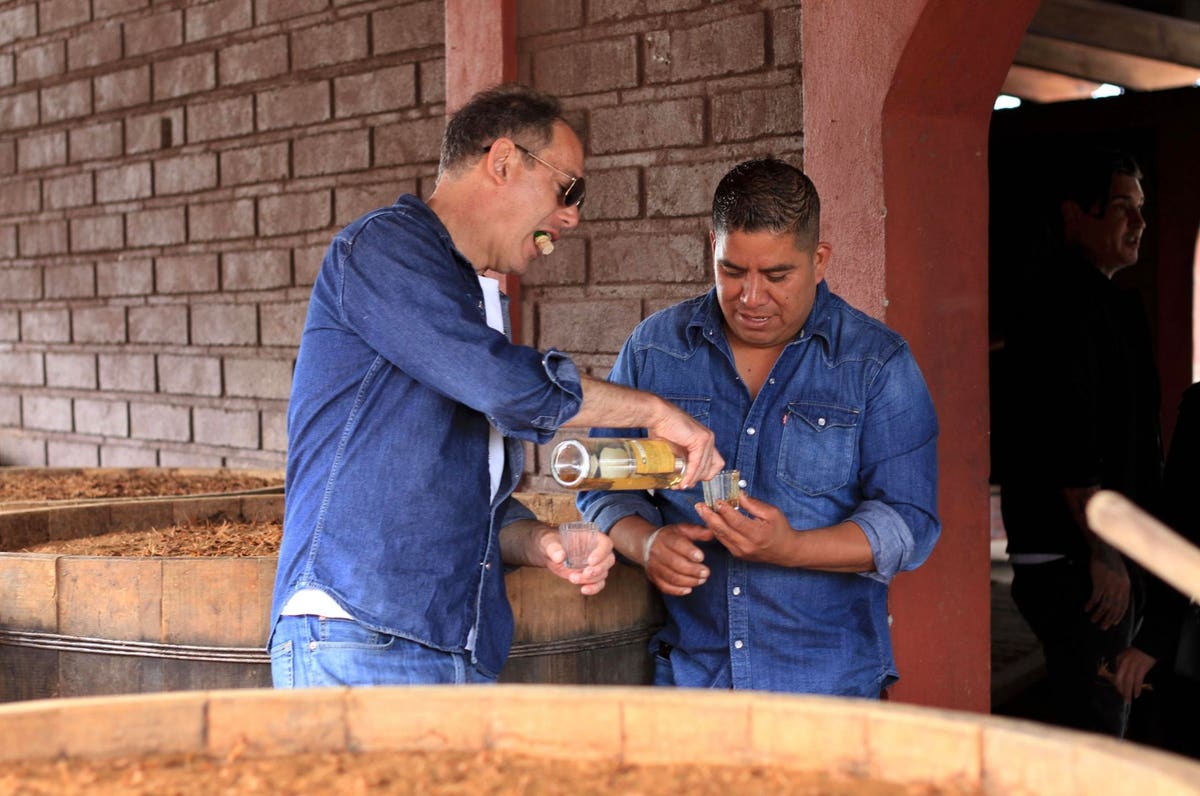Mezcal is one of the most traditional spirits in all of Mexico. And yet the story of Ilegal—one of the top-selling mezcals on shelves today—starts in Guatemala. In the early 2000s, John Rexer was running a bar in the Guatemalan town of Antigua. This was no ordinary watering hole. Café No Sé was more of a bohemian parlor, attracting a diverse array of artisans, expatriates and backpackers. Soon after opening, Rexer began smuggling Mexican spirit into the country in order to supply his patrons with something unexpected and flavorful.
Although—or perhaps because—the juice was unbranded and carried over from a variety of tiny villages north of the border in Oaxaca, it became a massive hit at the bar. The space soon gained notoriety as the first mezcal bar to exist outside of Mexico. In 2006, Rexer went above board and birthed the brand Ilegal. Originally, it was intended simply for his own establishment; a fact which is still laid bare on the back of every bottle. Of course, today you can find that bottle in just about every corner of the globe.
Needless to say, it’s been quite the journey for Rexer over these past two decades. And now, after an unprecedented era of growth, the company he founded is at a crossroads. Murmurs around the industry suggest that Ilegal is about to be acquired by a major booze conglomerate. What will this mean for the brand? And what will this mean for Rexer? We sat down with the founder in order to get his thoughts—straight from the still. Below he reflects on 20 years in the mezcal business and where he goes from here.
There has been news speculation over the last few months about the potential acquisition of Ilegal. Can you share any more details?
John Rexer: “I would put it this way: We have been working closely with our various investors to restructure the company and set it up for long term success. Ilegal grew by 80% in 2021, and then close to 80% again in 2022. How we prepare for the future is important for the economic and environmental sustainability of mezcal and of Oaxaca. We are working very hard to get it right. We are close to having something in place. The goal now is to manage the growth carefully and have long-term financial backing that will maintain the values that built the company. Artisanal production is the cornerstone of Ilegal. So, we will always use pit ovens, tahonas (horse-drawn mills), natural fermentation and 250-liter stills. We will always be transparent; the doors will always be open for the public to see how Ilegal is made, and to meet the many people from Oaxaca who handcraft every step of the process.”
Tell us more about Café No Sé, the legendary bar where you launched Ilegal.
JR: “Yes, Café No Sé, that candlelit dive bar on a cobblestone street in Antigua Guatemala, has made it past 20 years. Hard to believe. It has aged about as gracefully as Keith Richards’ face – sorry Keith. The walls — with faded photos, smoke-stained artwork and dents from thrown bottles — carry the memories of the many deliriously beautiful nights of music and mezcal. Café No Sé was the perfect creative setting for developing Ilegal Mezcal. Antigua, like Oaxaca, is layered in history and a mix of cultures.”
If you could go back in time to when you started, is there any advice you would give your entrepreneurial self?
JR: “If I could give my younger self advice, it would be to step away several times a year, for weeks at a time, to recharge and distance myself. I’d use that time to assess where I am in the business and in my life. I would ask myself: Do I need new people with different skills to make the business better, and to allow me the time to create? Where do I find those people? How do I best delegate to them? Don’t burn out. Speed is exhilarating, but good to pull over when the engine light comes on. I’d also tell myself to remember the phrase, “horses for courses”. I once hired a drummer who said he was an accountant. He was great at the former and a disaster at the latter. The accounting turned out like some long drum solo, lots of twirling of sticks and banging of symbols — and a balance that never balanced. Knowing myself, I would probably not take my advice.”
What does “success” for Ilegal look like to you?
JR: “Success is seeing Ilegal on shelves all around the world. But that has to also come with a Oaxaca that benefits from the success. Ilegal starts in Oaxaca, a place I fell in love with many decades ago, a place of stunning natural beauty, but also all the problems facing our modern world. The success of our business must contribute to what our distiller partners in Oaxaca hope for their community, which includes better jobs, a cleaner environment, and preservation of their Zapotec culture. We have already made an impact, but there is still a long way to go.”
What do you love most about your team?
JR: “Just one thing? That is hard. They are creative people, natural entrepreneurs, risk takers, gutsy, loyal, and fun to be around. They have become friends. They have side hustles from painting murals to hat making, to ice cream stands, to tamale shops, to marketing agencies. They are givers, not takers, and they are there to lend a hand to their friends in this often-inhospitable world of hospitality. They are pros and get the job done. It all sounds cliche, but they build real relationships, because they value their word.”
How are the company values incorporated into the everyday life and culture of the brand?
JR: “There are some basic mantras that we live by. Here they are: Support the whole category, not just Ilegal. Wherever you live, personally get behind an environmental project and Ilegal will do what we can to support that project in some way. Don’t ‘give back’. ‘Give along the way.’ When traveling, always remember you are a guest in someone else’s country. Live the brand and bring people together over music and food and a sharing of cultures. Desks are dull, be out there where the action is. Throw a damn good party.”
What’s the biggest threat to the Mezcal category?
JR: “The biggest threat is a loosening of regulations when it comes to production of mezcal and the use of the word ‘mezcal’. Those regulations are important because they define quality as well as protect the status of denomination of origin. For mezcal to retain its value in the market, and its distinction from other spirits, the regulations around mezcal must be enforced both in Mexico and around the world. Champagne, cognac and other products with appellation or denomination of origin, have strong financial backing and much better enforcement of their regulations globally. Mezcal should find a way to follow suit.”
What is the biggest opportunity?
JR: “The biggest opportunity, but also biggest challenge, is to apply as many best practices as possible and to learn from the mistakes of others. Tequila has had boom/bust cycles which over time has created economic instability and has led to hyper industrialization of many brands. Mezcal, as an international business, is still young enough to build a more sustainable model that benefits everyone throughout the chain, one that evens out the highs and lows, and protects environmental diversity. It is not an easy mission, but one the bigger players should lead as they expand their business.”
Read the full article here





